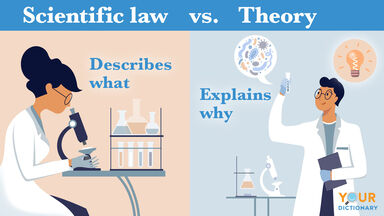Grimm's Law Definition
The statement of a series of systematic prehistoric changes of reconstructed Indo-European consonants to Proto-Germanic consonants: these hypothesized prehistoric sound shifts are reflected by consonant correspondences between Germanic words and their cognates in non-Germanic Indo-European languages: (1) IE voiceless stops (p, t, k) = Gmc voiceless fricatives (f, , h); hence, L pater (cf. paternal) = E father, L tenuis (cf. tenuous) = E thin, Gr kardia (cf. cardiac) = E heart (2) IE voiced stops (b, d, g) = Gmc voiceless stops (p, t, k); hence, L bucca (cf. buccal) = OE pohha, a sack, L decem (cf. decimal) = E ten, L genu (cf. genuflect) = E knee, which has lost the (k) sound (3) IE voiced aspirated stops (b + h, d + h, g + h) = Gmc voiced stops (b, d, g); hence, Sans bhrtar = E brother, Sans mādhu, honey = E mead, IE *ghostis = E guest These correspondences show the kinship, stressed in the etymologies of this dictionary, between various native English words and the English words borrowed from any of the non-Germanic Indo-European languages.
(linguistics) A sound change that affected the Proto-Indo-European stop consonants in the development of Proto-Germanic, causing devoicing or change into a fricative.
Origin of Grimm's Law
After Jakob Ludwig Karl Grimm
From American Heritage Dictionary of the English Language, 5th Edition
Named for Jacob Grimm.
From Wiktionary
Grimm's Law Is Also Mentioned In
Find Similar Words
Find similar words to Grimm's Law using the buttons below.





